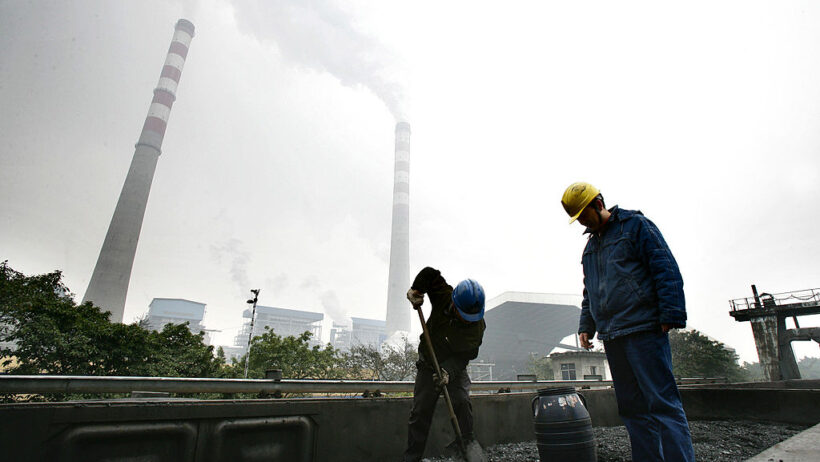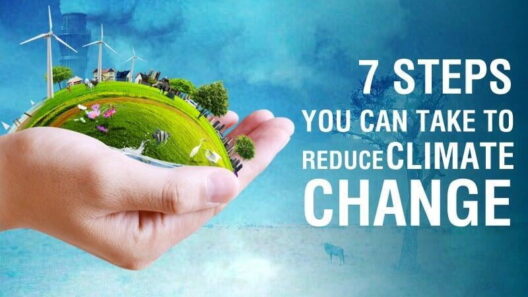As the global community rallies around the urgent need to mitigate climate change, the Paris Climate Agreement stands as a beacon of hope. Yet, in the shadow of this atmospheric lighthouse, some countries remain adrift in a sea of indecision, unwilling or unable to anchor themselves to the accord. This divergence raises critical questions about geopolitics, economic aspirations, and the labyrinthine corridors of national interests that shape environmental policy.
The Paris Agreement, forged in December 2015, is a collective commitment to cap global temperature rise and foster resilience against the whims of climate chaos. In this fragile tapestry of international cooperation, however, several nations have opted out, choosing instead to pursue paths that may seem, to some, as reckless abandon. But rather than viewing this absence as mere obstinacy, one must unravel the intricate motives that lead nations to either embrace or eschew this global initiative.
Firstly, the gravitational pull of economic considerations cannot be overlooked. For many developing nations, the promise of industrial growth and improved living standards takes precedence over environmental commitments. Imagine a balancing scale: on one side rests the allure of burgeoning markets, factories humming with activity, and the dreams of millions lifted from poverty; on the other side, the abstract and often intangible benefits of climate mitigation. In this scenario, the weight of immediate economic gain often tips the scales.
Moreover, the specter of historical injustices looms large in discussions of climate responsibility. Countries that industrialized early, primarily in the Global North, contributed disproportionately to the accumulation of greenhouse gases in the atmosphere. Thus, many nations, particularly in the Global South, view international environmental agreements with skepticism, perceiving them as neo-colonial attempts to stifle their development. This sentiment—that the past’s inequities should not dictate their future—fuels a reluctance to partake in the Paris framework.
The notion of national sovereignty also plays a pivotal role in the decision to abstain from the Agreement. Many leaders view their prerogative to set domestic policies as sacrosanct, akin to a kingdom with its own set of laws and customs. For some, the Paris deal can appear as an infringement upon this sovereignty, an external dictate that seeks to impose global norms onto national arenas. As such, the metaphorical walls of some nations remain fortified against what they perceive as unwarranted intrusion.
Additionally, the specter of political volatility often complicates the calculus surrounding international climate agreements. Governments may find themselves grappling with internal dissent, economic hardships, or shifting leadership, which can lead to a diminished focus on climate commitments. In these tumultuous environments, the Paris Agreement may be relegated to the back burner, overshadowed by more pressing domestic issues. When the winds of change blow through a nation’s political landscape, the stalwarts of climate policy can become flotsam in the turbulent tides of governance.
It is also crucial to acknowledge the varying degrees of vulnerability to climate impacts across the globe. Nations at the equatorial belt are often the first to feel the searing heat of climate change, propelling them toward urgent action. In contrast, countries in temperate zones may experience a delayed reaction, affording their leaders the tragic luxury of time—a perilous notion when considering the urgency of climate action. The disparity in perceived urgency can lead to unequal levels of commitment to international agreements, further fracturing the global response to climate change.
This discord appears starkly in the context of fossil fuel reliance. Oil-rich nations, for instance, often find themselves ensnared in a web of economic dependency on hydrocarbon exports. For these countries, signing onto the Paris Agreement could signify a stranglehold on their primary revenue source. The result is a paradox wherein nations endowed with substantial fossil fuel reserves might resist engaging in climate action, choosing instead to adhere to business-as-usual practices. The irony, however, is that in postponing action, they ultimately jeopardize their long-term economic viability, as the world edges closer to a carbon-free future.
Furthermore, the allure of populism and nationalist rhetoric can complicate the narrative surrounding climate agreements. Leaders who garner support by espousing skepticism toward climate science or global cooperation often find themselves legitimized by segments of the population that feel disenfranchised by globalization. In such cases, the reluctance to join the Paris Agreement becomes a rallying cry, appealing to the sentiments of sovereignty and autonomy. This populist backlash against global norms can impede progress and stall initiatives aimed at addressing the pervasive predator that is climate change.
Ultimately, the absence of certain nations from the Paris Climate Agreement serves as a microcosm of a larger struggle between progress and preservation. With each nation forging its own unique trajectory through the labyrinth of climate policy, the interconnectedness of our global community resounds ever louder. The challenge lies not only in convincing the recalcitrant to join the cause but also in fostering an environment where meaningful dialogue can flourish, where divergent histories and priorities can be reconciled with a shared understanding of our collective fate.
In navigating this intricate web, it is essential for advocates of climate action to embrace the diversity of perspectives that inform each nation’s stance. The path forward is fraught with complexity, but only by addressing the myriad factors that influence participation can we hope to create a united front against the existential crisis of our time. As we peer into the distance, the horizon before us hints at a world transformed—not just by the light of cooperation, but by the clarity that comes from recognizing and addressing the multifaceted realities that shape our global response to climate change.






